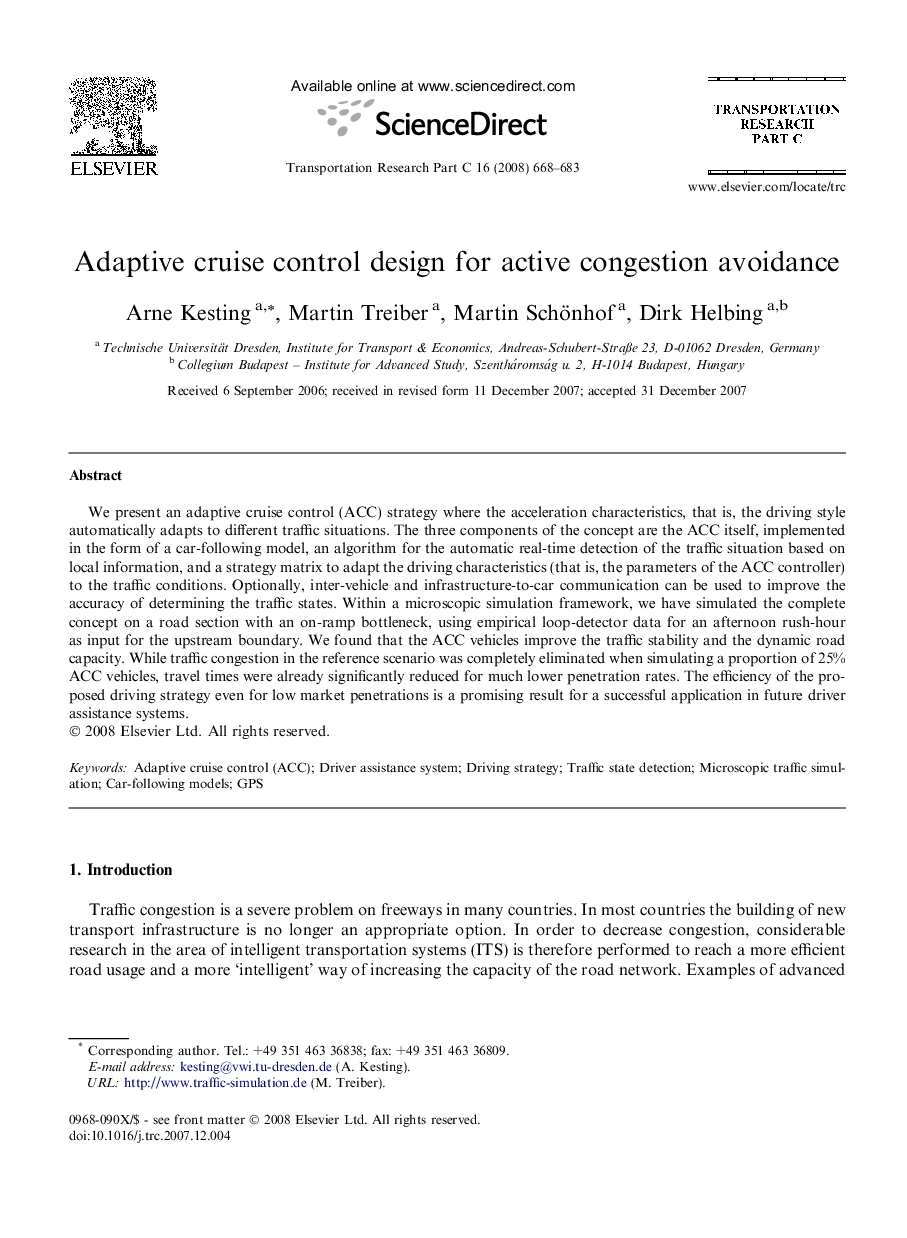| Article ID | Journal | Published Year | Pages | File Type |
|---|---|---|---|---|
| 526676 | Transportation Research Part C: Emerging Technologies | 2008 | 16 Pages |
We present an adaptive cruise control (ACC) strategy where the acceleration characteristics, that is, the driving style automatically adapts to different traffic situations. The three components of the concept are the ACC itself, implemented in the form of a car-following model, an algorithm for the automatic real-time detection of the traffic situation based on local information, and a strategy matrix to adapt the driving characteristics (that is, the parameters of the ACC controller) to the traffic conditions. Optionally, inter-vehicle and infrastructure-to-car communication can be used to improve the accuracy of determining the traffic states. Within a microscopic simulation framework, we have simulated the complete concept on a road section with an on-ramp bottleneck, using empirical loop-detector data for an afternoon rush-hour as input for the upstream boundary. We found that the ACC vehicles improve the traffic stability and the dynamic road capacity. While traffic congestion in the reference scenario was completely eliminated when simulating a proportion of 25% ACC vehicles, travel times were already significantly reduced for much lower penetration rates. The efficiency of the proposed driving strategy even for low market penetrations is a promising result for a successful application in future driver assistance systems.
